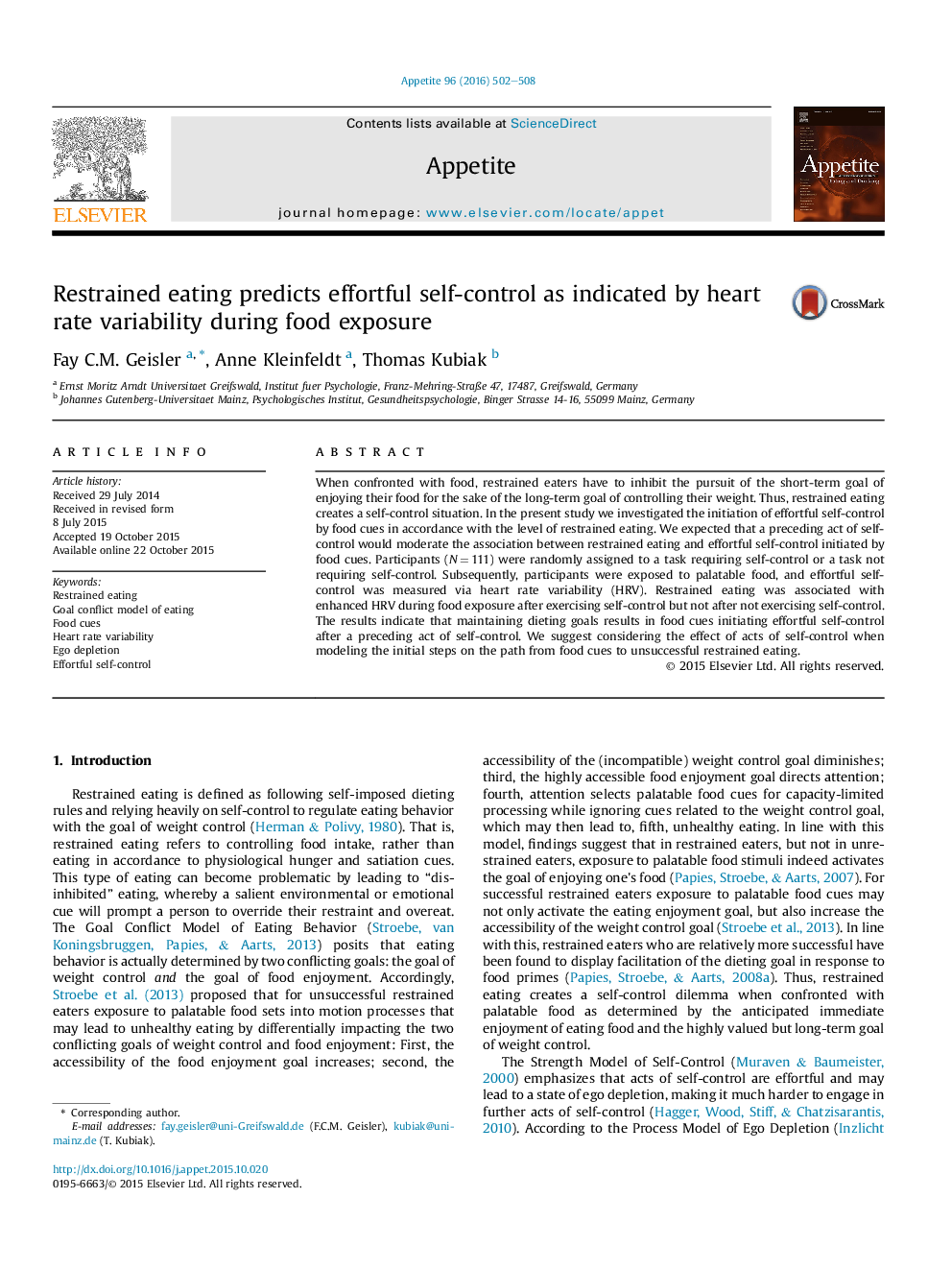| کد مقاله | کد نشریه | سال انتشار | مقاله انگلیسی | نسخه تمام متن |
|---|---|---|---|---|
| 7308419 | 1475384 | 2016 | 7 صفحه PDF | دانلود رایگان |
عنوان انگلیسی مقاله ISI
Restrained eating predicts effortful self-control as indicated by heart rate variability during food exposure
ترجمه فارسی عنوان
خوردن محروم خود را کنترل می کند که با تغییرات ضربان قلب در هنگام قرار گرفتن در معرض مواد غذایی نشان داده می شود
دانلود مقاله + سفارش ترجمه
دانلود مقاله ISI انگلیسی
رایگان برای ایرانیان
کلمات کلیدی
موضوعات مرتبط
علوم زیستی و بیوفناوری
علوم کشاورزی و بیولوژیک
دانش تغذیه
چکیده انگلیسی
When confronted with food, restrained eaters have to inhibit the pursuit of the short-term goal of enjoying their food for the sake of the long-term goal of controlling their weight. Thus, restrained eating creates a self-control situation. In the present study we investigated the initiation of effortful self-control by food cues in accordance with the level of restrained eating. We expected that a preceding act of self-control would moderate the association between restrained eating and effortful self-control initiated by food cues. Participants (NÂ =Â 111) were randomly assigned to a task requiring self-control or a task not requiring self-control. Subsequently, participants were exposed to palatable food, and effortful self-control was measured via heart rate variability (HRV). Restrained eating was associated with enhanced HRV during food exposure after exercising self-control but not after not exercising self-control. The results indicate that maintaining dieting goals results in food cues initiating effortful self-control after a preceding act of self-control. We suggest considering the effect of acts of self-control when modeling the initial steps on the path from food cues to unsuccessful restrained eating.
ناشر
Database: Elsevier - ScienceDirect (ساینس دایرکت)
Journal: Appetite - Volume 96, 1 January 2016, Pages 502-508
Journal: Appetite - Volume 96, 1 January 2016, Pages 502-508
نویسندگان
Fay C.M. Geisler, Anne Kleinfeldt, Thomas Kubiak,
